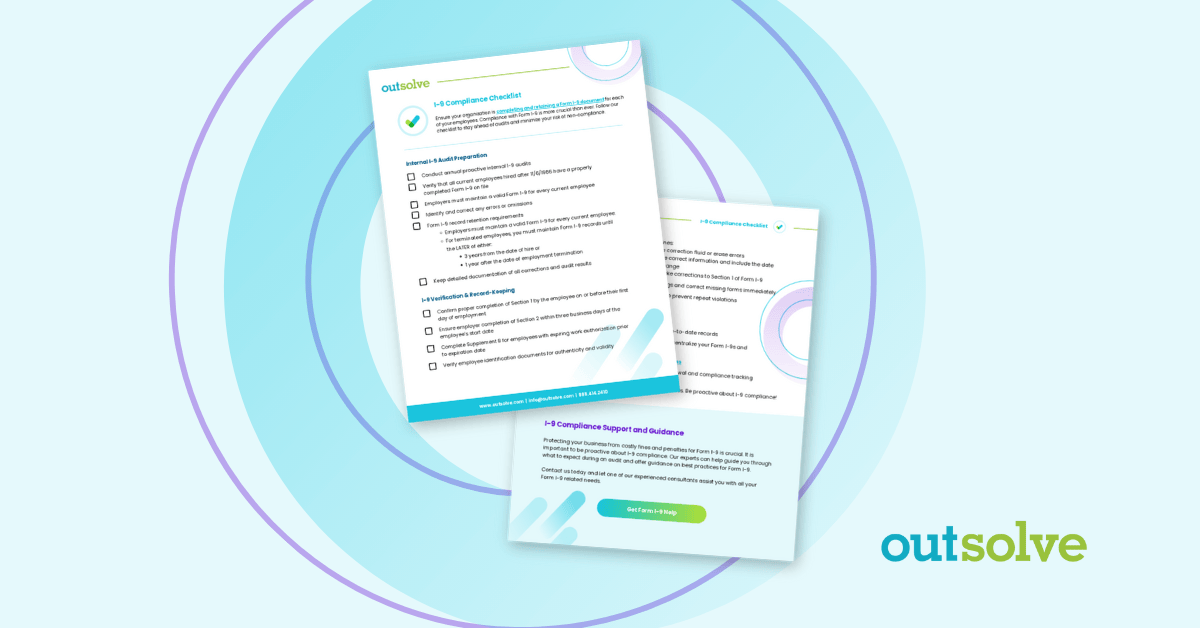
Familiar with pay compression? If you're in HR, then you've likely come across scenarios where a new hire is brought in at a salary close to, or even higher than, the salaries of some of your long-term, high-performing employees. That’s pay compression and it’s an uncomfortable, inevitable conversation waiting to happen given the rise in pay transparency laws across the U.S.
Because today’s job market is fiercely competitive, many employers feel they need to “up the ante” to attract top talent. This often equates to offering higher salaries to new employees. With that said, pay compression has quietly become one of the most pressing compensation issues in today’s job market, especially as companies scramble to keep up with wage growth, inflation, and labor laws. The reality is that too many organizations still underestimate the impact of pay compression until it starts hitting retention, morale, and equity. By that time, some damage has already happened.
Let’s go into detail on the various aspects of pay compression. Here are three key takeaways you’ll learn in this article:
- What pay compression is and its common causes
- Impacts of pay compression
- How HR can prepare and prevent pay compression
What Is Pay Compression?
Let’s start with the basics. Pay compression, also referred to as salary or wage compression, occurs when there's little or no difference in pay between employees, regardless of their skills, experience, seniority, or performance. This often happens when the pay of new or more junior employees increases at a faster rate than more senior level employees. This leads to a “squeezing” or “compression” of the company’s salary ranges. Common examples of pay compression include:
- A new hire in marketing comes in earning $68,000, while a three-year employee in the same role is making $70,000.
- An entry level software engineer makes $5,000 more than a team lead who’s been with the company for five years.
- After a company-wide minimum wage bump, entry-level workers are suddenly earning nearly the same as shift supervisors.
If these examples sound familiar, you’re not alone. These are just a few examples of this common pay compression issue. These scenarios are playing out in companies across so many industries, especially in light of rising labor costs, inflation, and competition for attracting and retaining talent.
Causes of Pay Compression
Pay compression isn’t usually the result of bad intentions, but often a result of short-term or reactive compensation practices. Here are a few of the top causes:
- Market Pressures: Candidate supply and demand is a leading cause of pay compression. Companies might be driven to offer higher salaries in order to convince talent to work for them instead of another company. This is effective for recruiting but can inadvertently lead to compression if adjustments aren't made for existing employees.
- Minimum Wage Increases: When federal or state minimum wages increase, companies often raise starting pay across the board. However, if the pay for more senior or supervisory roles doesn’t increase proportionally, then it creates compression.
- Weak Compensation Policies: A poor or nonexistent compensation philosophy or policy can lead to pay compression, as a result of ad hoc salary decisions, inconsistent job leveling, and unclear or overlapping compensation structures. Without clear guidelines, it’s easy to fall into a pattern of making short-term decisions and just doing “what it takes to hire,” without thinking of the longer-term implications.
- Lack of Salary Adjustments: If you’re not keeping up with the market and regularly adjusting salaries for inflation or performance, then compression can and will sneak up on you.
- Lack of Annual Pay Equity Audits: Skipping regular equity reviews means you might miss red flags, especially as your workforce grows or changes. Proactive audits help you identify compression early and make necessary adjustments before it becomes a bigger issue.
Why Does Pay Compression Matter?
So, why does any of this matter? Pay compression isn’t just a budget problem, it’s also a people problem. It can create headaches for HR in many areas, such as:
- Employee Dissatisfaction
Pay compression can create a perception of unfairness in the workforce. Employees are savvier than ever before and take notice of things in their work environment, especially when it comes to their pay. Not only that but the rise in state pay transparency laws makes it mandatory for employers in certain states to post salary ranges in job descriptions. Current employees may look at those postings and wonder why they aren’t getting paid as much as listed, which can cause resentment.
Employees often talk to one another about salary and word gets around fast. Pay compression can have a negative impact on the workforce as it erodes morale and trust. In turn, that frustration can lead to disengagement and decreased productivity. - Turnover and Retention Issues
Dissatisfied employees don’t usually stay quiet and eventually may be more inclined to look for career opportunities elsewhere. You risk losing your top talent if they feel they can get fairer pay elsewhere. Remember that losing a top-notch employee is often far costlier than making a salary adjustment, so yet another reason that being proactive can make all the difference. - Compliance and Legal Risks
In some states, failure to maintain fair and equitable compensation can open you up to legal scrutiny, especially if compression disproportionately affects underrepresented groups.
How to Fix and Prevent Pay Compression
The good news is that pay compression can be fixed, and even prevented, when you take a proactive, thoughtful and data-driven approach. With pay transparency in the spotlight and a common topic of discussion, getting a handle of pay compression needs to be a priority.
Here are a few steps you can take now that will save you problems down the road:
- Conduct Compensation Analyses and Audits: Start by evaluating where compression exists in your organization. Run compensation analyses that compare your employees' current salaries with market rates, tenure, and internal peers. Make adjustments as needed. You can then conduct internal equity reviews at least once a year going forward to spot and resolve new or overlooked inconsistencies.
- Benchmark Pay Rates: Regularly review salary benchmarks by role, geography, and industry. This will confirm that your offers are competitive and that your current employees aren’t falling behind the market. Do this on an annual basis. It will also help manage internal equity when it comes to compensation.
- Adjust Salary Ranges: If new hires are consistently coming in at the top of the range, it’s time to reassess your salary bands. Adjusting ranges upward can provide room to recognize and reward your existing employees. Of course, this all has to be done with the company’s budget in mind, which can be a delicate balance.
- Improve Pay Transparency: Communication is key. Being open about how salaries are determined can build trust and prevent misunderstandings. Many states now have pay transparency laws that require salary ranges to be posted on job descriptions or shared upon request. Use these regulations to your advantage by creating a culture of transparency. Conduct training about your company’s compensation policies to both employees and managers so there are no unpleasant surprises down the road.
- Implement Formal Compensation Strategies: Move away from reactive salary decisions. Get clear on your compensation philosophy and how individuals are rewarded. Make sure that your company leaders are on board and that the compensation philosophy is incorporated into your pay administration. Develop a communications strategy that educates and engages management on the company’s compensation business drivers and gives them more confidence in explaining compensation changes to their employees.
- Leverage Tools and Experts: Consider using compensation management software or working with compensation consultants to bring in outside expertise and efficient systems. Our experts here at OutSolve are ready to assist.
- Document, Document, Document: Keep track of and document all pay changes and decisions. This not only helps keep things organized and provides a historical reference but also can act as supporting documentation if any concerns or legal challenges arise.
Not sure where to begin when it comes to getting your compensation in order? Tools such as OutSolve’s Compensation Quiz can help you determine the best compensation plan for your company’s size, structure, and goals.
What Pay Compression Means for Your Organization
Pay compression might seem like a background issue, but its impact can be anything but subtle. From morale to equity to retention, it affects every corner of the employee experience. As compensation becomes more transparent and scrutinized, getting ahead of pay compression is a must.
Fortunately, you don’t have to tackle this alone. Whether you're just starting your compensation strategy or ready to optimize, we're here to help.
As a first step, don’t forget to take OutSolve's Compensation Quiz to determine the best compensation strategy for your company. Or reach out to our compensation experts for help developing your compensation strategy to help mitigate pay compression.
Nick Jones is a member of OutSolve’s compensation team as an analyst specializing in pay equity and market pay analyses. Nick also supports federal contractors with pay data analytics and state pay reporting. Experienced in interpreting big data, he provides companies with the vital information needed to ensure equity, efficiency, and competitiveness in their compensation. Nick graduated from Tulane University and earned his master’s degree in Data Analytics from the University of New Orleans in 2022.
Weekly OutLook
Featured Posts

5 Key Compliance Items HR Can’t Afford to Ignore

HR Compliance Checklist: What Every HR Pro Needs to Know
Related Posts

I-9 Audit Checklist: Don’t Risk an Audit
Employers continue to be held to a higher standard when it comes to Form I-9 compliance, especially due to increased immigration enforcement and...

outRageous HR: HR Plans vs. Reality: Why Execution Falls Apart (and How to Fix It)
We all know the feeling. In Q4, strategic planning is in full swing, and the roadmap for the upcoming year looks pristine. You have a solid...
.png)
Beat the Rush: Outsource Federal Reporting Requirements in Q1
The beginning of the year usually feels like a fresh start that brings new business initiatives, goals, and strategies. The work you do between...
 Nick Jones
Nick Jones

